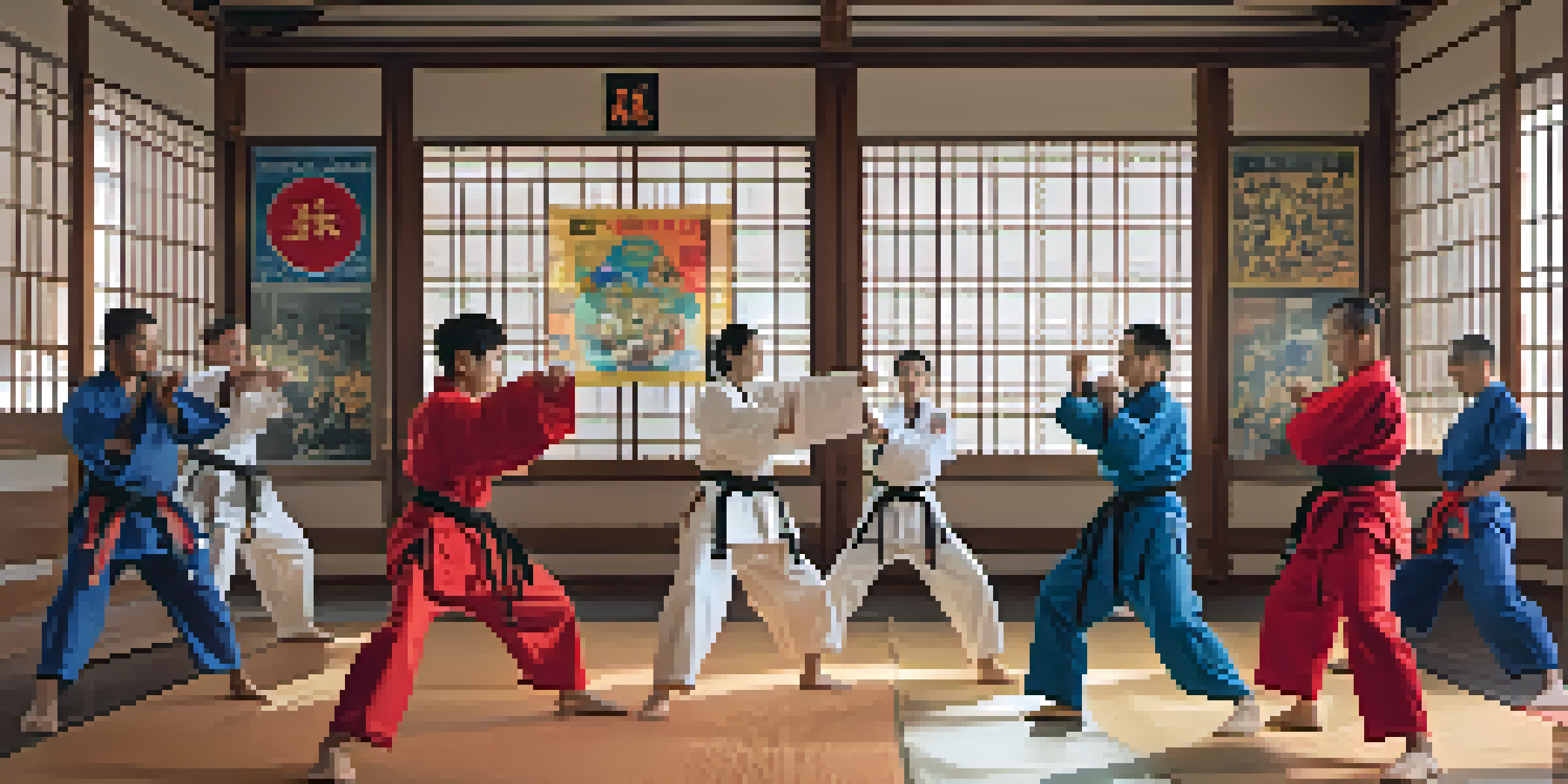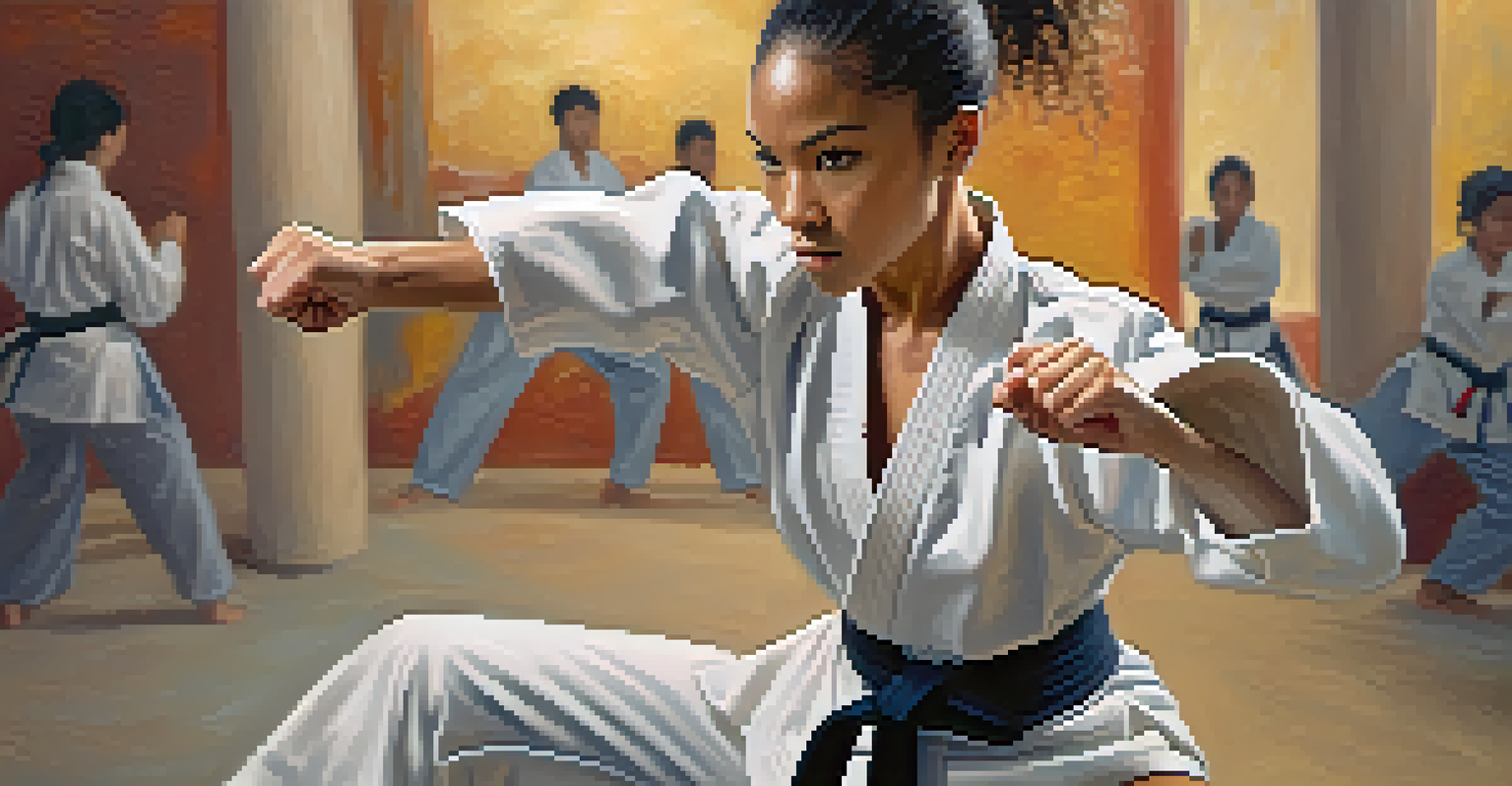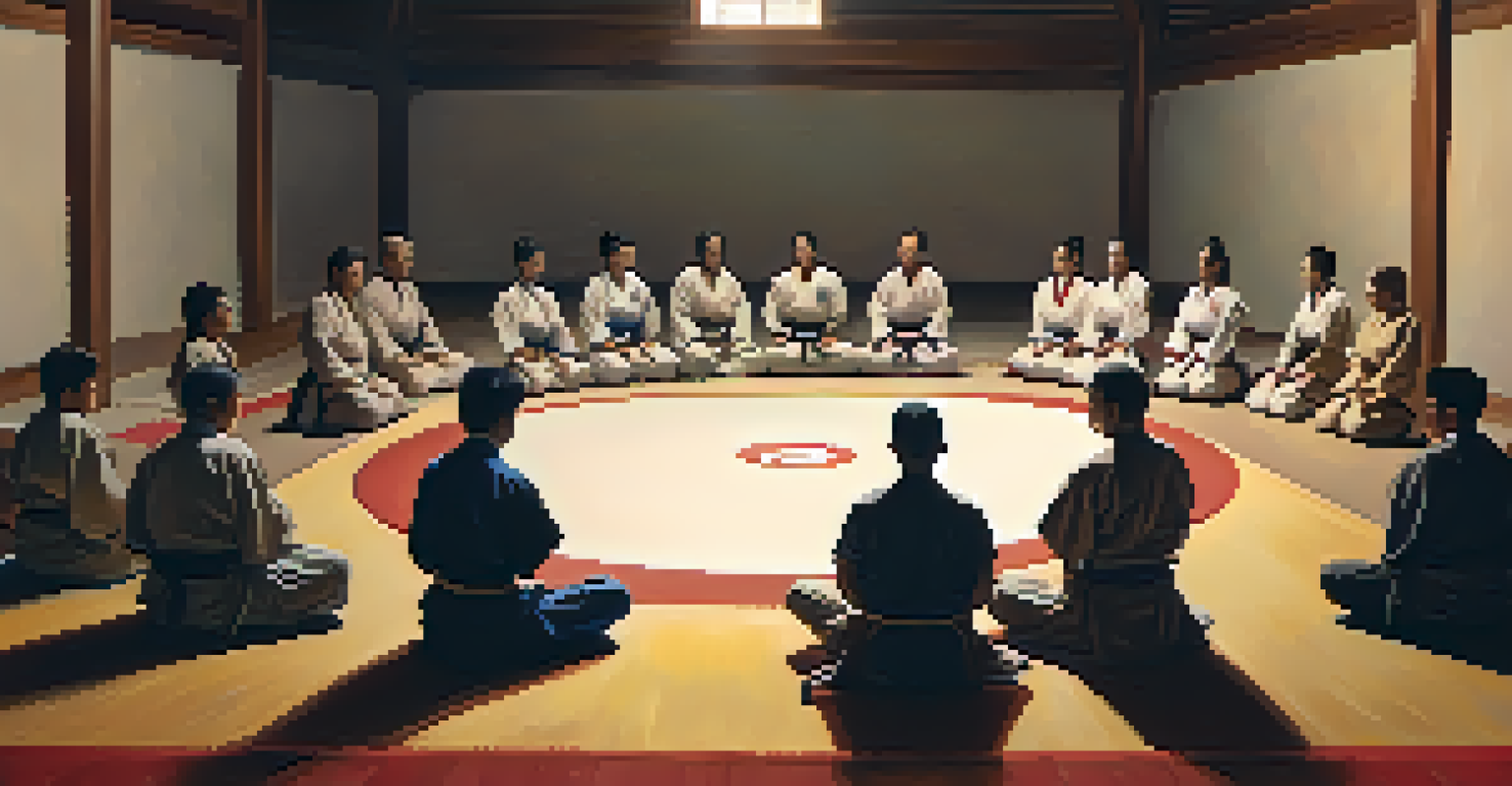Intersectionality in Martial Arts: A Path for Social Change

Understanding Intersectionality and Its Importance
Intersectionality is a framework that examines how various social identities, such as race, gender, and class, intersect to create unique experiences of oppression and privilege. By understanding these interconnected identities, we can better appreciate the complexities of social issues. This concept is crucial in martial arts, as practitioners come from diverse backgrounds, each bringing their own perspectives and challenges to the mat.
Injustice anywhere is a threat to justice everywhere.
In the realm of martial arts, acknowledging intersectionality can help create a more inclusive environment. For instance, a female fighter of color may face different challenges than her male counterparts, highlighting the need for empathy and support within the community. By fostering an understanding of these differences, martial arts can become a powerful platform for social change.
Ultimately, recognizing intersectionality in martial arts not only strengthens the community but also empowers individuals to advocate for themselves and others. This awareness can lead to meaningful discussions about social justice and equity, setting the stage for transformative change both inside and outside the dojo.
Martial Arts as a Space for Empowerment
Martial arts training provides individuals with skills, confidence, and resilience, but it can also serve as a transformative space for empowerment. This is particularly significant for marginalized communities, where access to resources and support may be limited. By participating in martial arts, individuals can reclaim their narrative and build a sense of agency over their lives.

For example, women in self-defense classes often report increased self-esteem and a sense of community. These classes not only teach physical techniques but also foster a supportive environment where women can share their experiences and learn from one another. Such empowerment is a crucial step in addressing broader social issues like gender-based violence.
Intersectionality Enhances Understanding
Recognizing intersectionality in martial arts fosters empathy and support, enriching the community experience.
Moreover, martial arts can bridge gaps between different communities, allowing individuals to connect through shared experiences and goals. These connections can lead to a collective movement toward social change, as practitioners unite to advocate for justice and equality.
Promoting Diversity in Martial Arts Communities
Diversity within martial arts communities is essential for fostering a welcoming and inclusive environment. When practitioners come from various backgrounds, they bring unique perspectives that enrich the training experience. This diversity not only enhances learning but also promotes understanding and respect among participants.
Diversity is not about how we differ. Diversity is about embracing one another's uniqueness.
To promote diversity, martial arts schools can implement outreach programs targeting underrepresented groups. By providing scholarships or free classes, they can lower the barriers to entry for those who may not have had access otherwise. These initiatives can help create a more equitable landscape in martial arts, ensuring that everyone has the opportunity to participate.
Incorporating diverse voices into leadership positions within martial arts organizations is also vital. This representation can lead to more inclusive policies and practices that cater to the needs of all practitioners, ultimately fostering an environment of mutual respect and collaboration.
The Role of Representation in Martial Arts
Representation matters in martial arts, just as it does in any aspect of society. When individuals see people who look like them excelling in martial arts, it can inspire them to pursue their own goals. This visibility is particularly crucial for youth, who may lack role models in their communities.
For instance, films featuring diverse martial artists can spark interest in the discipline among underrepresented groups. These portrayals help break stereotypes and challenge the dominant narratives often seen in media. By showcasing a variety of characters and stories, martial arts can inspire a new generation of practitioners who identify with those experiences.
Diversity Empowers Martial Arts
Promoting diversity within martial arts communities creates a more inclusive environment, enhancing learning and respect among practitioners.
Furthermore, when martial arts schools celebrate diverse champions and instructors, they help cultivate an environment where everyone feels valued. This sense of belonging can lead to increased participation and a stronger commitment to the martial arts community.
Intersectionality and Mental Health in Martial Arts
Martial arts can play a significant role in promoting mental health, especially for individuals dealing with the challenges of intersecting identities. The physical activity and discipline involved in martial arts training can serve as an effective outlet for stress relief and emotional regulation. This is particularly important for those who may face systemic barriers to mental health support.
In addition, the sense of community found in martial arts can provide individuals with a supportive network. Sharing experiences and challenges with fellow practitioners can foster connection and understanding, which are vital for mental well-being. These relationships can help combat feelings of isolation often experienced by marginalized individuals.
By incorporating discussions about mental health into martial arts training, practitioners can further break down stigmas and promote self-care. This holistic approach not only benefits individuals but also strengthens the community as a whole.
Building Allyship Through Martial Arts
Allyship is crucial in promoting social change, and martial arts can be a powerful platform for building solidarity among practitioners. Allies can support marginalized individuals by amplifying their voices and advocating for their needs. This is especially important in environments where power dynamics may favor certain groups over others.
In martial arts, allies can take on mentorship roles, helping to guide and uplift those who may face systemic challenges. This support can manifest in various ways, such as providing training opportunities or creating safe spaces for discussion. The act of standing up for one another can foster a sense of belonging and solidarity within the community.
Allyship Drives Social Change
Building allyship in martial arts helps amplify marginalized voices and fosters a culture of support and inclusivity.
Ultimately, allyship in martial arts is about creating a culture of support and inclusivity. By working together and standing up for one another, practitioners can drive meaningful social change, extending the lessons learned on the mat to broader societal issues.
Conclusion: The Future of Intersectionality in Martial Arts
As the conversation around intersectionality continues to grow, martial arts has the potential to serve as a catalyst for social change. By embracing diversity and fostering inclusive practices, martial arts communities can create a supportive environment for all practitioners. This shift not only benefits individuals but also strengthens the community as a whole.
Looking ahead, it’s essential for martial arts organizations to prioritize intersectional training and education. By equipping instructors and practitioners with the knowledge to navigate complex social issues, they can foster a culture of awareness and empathy. This proactive approach can lead to lasting change both within the dojo and in society at large.

In conclusion, intersectionality in martial arts is about more than just technique; it encompasses the values of respect, support, and empowerment. By harnessing the power of martial arts, we can forge a path toward a more equitable and just world for everyone.